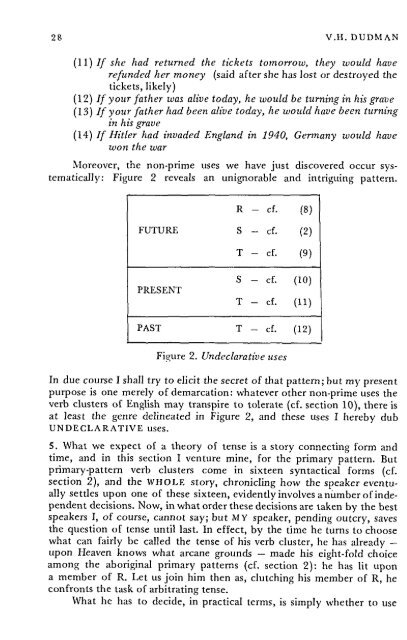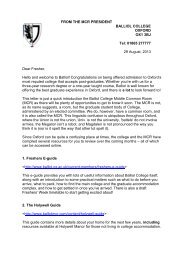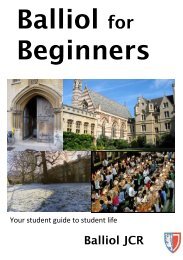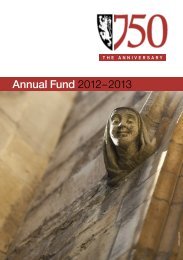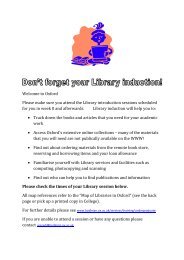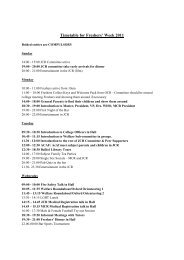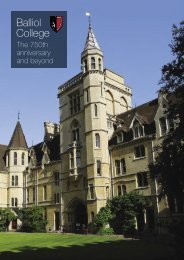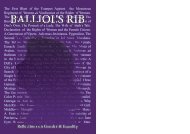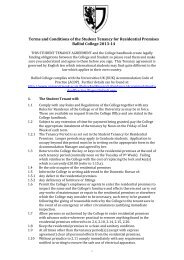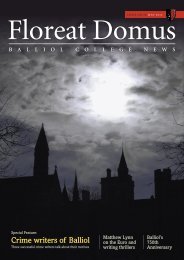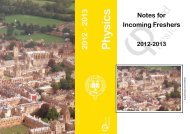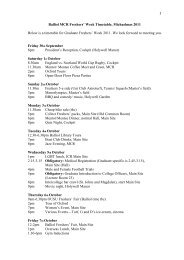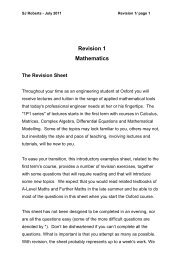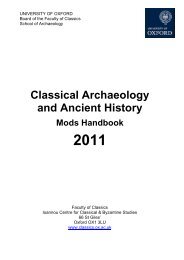TENSE AND TIME IN ENGLISH VERB CLUSTERS OF THE ...
TENSE AND TIME IN ENGLISH VERB CLUSTERS OF THE ...
TENSE AND TIME IN ENGLISH VERB CLUSTERS OF THE ...
- No tags were found...
You also want an ePaper? Increase the reach of your titles
YUMPU automatically turns print PDFs into web optimized ePapers that Google loves.
28 V.H. DUDMAN<br />
(11) // she had returned the tickets tomorrow, they would have<br />
refunded her money (said after she has lost or destroyed the<br />
tickets, likely)<br />
(12) // your father was alive today, he would be turning in his grave<br />
(13) If your father had been alive today, he would have been turning<br />
in his grave<br />
(14) If Hitler had invaded England in 1940, Germany would have<br />
won the war<br />
Moreover, the non-prime uses we have just discovered occur systematically:<br />
Figure 2 reveals an unignorable and intriguing pattern.<br />
R<br />
- cf.<br />
(8)<br />
FUTURE<br />
S<br />
- cf.<br />
(2)<br />
T<br />
- cf.<br />
(9)<br />
PRESENT<br />
S<br />
T<br />
- cf.<br />
- cf.<br />
(10)<br />
(11)<br />
PAST<br />
T<br />
- cf.<br />
(12)<br />
Figure 2. Undeclarative uses<br />
In due course I shall try to elicit the secret of that pattern; but my present<br />
purpose is one merely of demarcation: whatever other non-prime uses the<br />
verb clusters of English may transpire to tolerate (cf. section 10), there is<br />
at least the genre delineated in Figure 2, and these uses I hereby dub<br />
UNDECLARATIVE uses.<br />
5. What we expect of a theory of tense is a story connecting form and<br />
time, and in this section I venture mine, for the primary pattern. But<br />
primary-pattern verb clusters come in sixteen syntactical forms (cf.<br />
section 2), and the WHOLE story, chronicling how the speaker eventually<br />
settles upon one of these sixteen, evidently involves a number of independent<br />
decisions. Now, in what order these decisions are taken by the best<br />
speakers I, of course, cannot say; but MY speaker, pending outcry, saves<br />
the question of tense until last. In effect, by the time he turns to choose<br />
what can fairly be called the tense of his verb cluster, he has already —<br />
upon Heaven knows what arcane grounds — made his eight-fold choice<br />
among the aboriginal primary patterns (cf. section 2): he has lit upon<br />
a member of R. Let us join him then as, clutching his member of R, he<br />
confronts the task of arbitrating tense.<br />
What he has to decide, in practical terms, is simply whether to use


